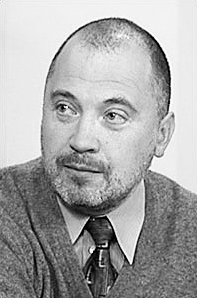 Nikolai Petrov
Nikolai PetrovMoscow maintains a delicate balance of power among ethnic clans in Dagestan by essentially buying their loyalty in return for relative calm. Now, federal authorities have decided upon a more invasive "surgical procedure" by detaining one of the most powerful people in the entire North Caucasus — Said Amirov, the mayor of Makhachkala since 1998. Based on the Amirov detention and the earlier move to replace former Dagestani Governor Magomedsalam Magomedov, the siloviki now have an even freer hand to maintain order in Dagestan by any means.
Amirov was detained on charges that he organized the December 2011 murder of Arsen Gadzhibekov, the director of the Investigative Committee in one of the districts of Makhachkala. A nephew of Amirov who was also deputy mayor of the Dagestani city of Kaspiisk was detained one day earlier on charges of trading weapons and drugs and for complicity in the Gadzhibekov murder. Gadzhibekov had been investigating a number of serious crimes, including a major terrorist attack in the city of Kizlyar in 2010 that killed 10 people and injured 270.
The sting operation to arrest the mayor and 10 other suspects in the case was secretly prepared in advance and carried out by Interior Ministry and Federal Security Service officers from outside the region. Armored vehicles were stationed in the city center and near Amirov's home, and riot police were brought in to cordon off government buildings. The mayor was flown from the central square by military helicopter out of the city. They were then transferred to Moscow, along with other detainees.
Amirov has been a political legend since the 1990s when the power in Dagestan was officially divided between the main ethnic clans that maintained their own militias. As the leader of the Dargin, the republic's second-largest ethnic group, Amirov could mobilize hundreds of armed fighters whenever necessary. It is therefore no surprise that he was arrested on Saturday, while many thousands of local fans were attending a football game hundreds of kilometers away.
Amirov has survived 15 assassination attempts over the past 20 years, and following one in 1993 was confined to a wheelchair, for which he earned the nickname "Roosevelt." His son heads the republic's office of the bailiff that is located in a building close to one where a terrorist attack occurred two weeks ago. His other son heads the Committee on Legislation, Law and State Building in the Dagestani parliament. Moscow has always been concerned about Amirov's extensive network of foreign contacts, and even greater attention was focused on possible Dagestani links to the Boston Marathon bombing.
Amirov's fate could play out in one of two possible ways. In the first scenario, Moscow authorities could pressure him to make way for new political authorities in Dagestan. In a far more serious scenario, authorities could hold Amirov in pretrial detention for an extended period or even initiate criminal proceedings against him. But this could destabilize Dagestan, something the Kremlin definitely wants to avoid in the run-up to the upcoming Olympic Games in Sochi.
In either case, the balance of power among the ethnic clans in the republic could be significantly shaken up because both Amirov and Magomedov are ethnic Dargins. In January, when Magomedov was removed from office and appointed to the specially created post of deputy head of the presidential administration, he exhorted his fellow Dargin supporters to remain calm. It is entirely possible that something similar will now play out with Amirov. In any case, much will depend on the extent to which the authorities are able to maintain control in Dagestan with Amirov now out of the picture.
Nikolai Petrov is a professor of political science at the Higher School of Economics.
A Message from The Moscow Times:
Dear readers,
We are facing unprecedented challenges. Russia's Prosecutor General's Office has designated The Moscow Times as an "undesirable" organization, criminalizing our work and putting our staff at risk of prosecution. This follows our earlier unjust labeling as a "foreign agent."
These actions are direct attempts to silence independent journalism in Russia. The authorities claim our work "discredits the decisions of the Russian leadership." We see things differently: we strive to provide accurate, unbiased reporting on Russia.
We, the journalists of The Moscow Times, refuse to be silenced. But to continue our work, we need your help.
Your support, no matter how small, makes a world of difference. If you can, please support us monthly starting from just $2. It's quick to set up, and every contribution makes a significant impact.
By supporting The Moscow Times, you're defending open, independent journalism in the face of repression. Thank you for standing with us.
Remind me later.






